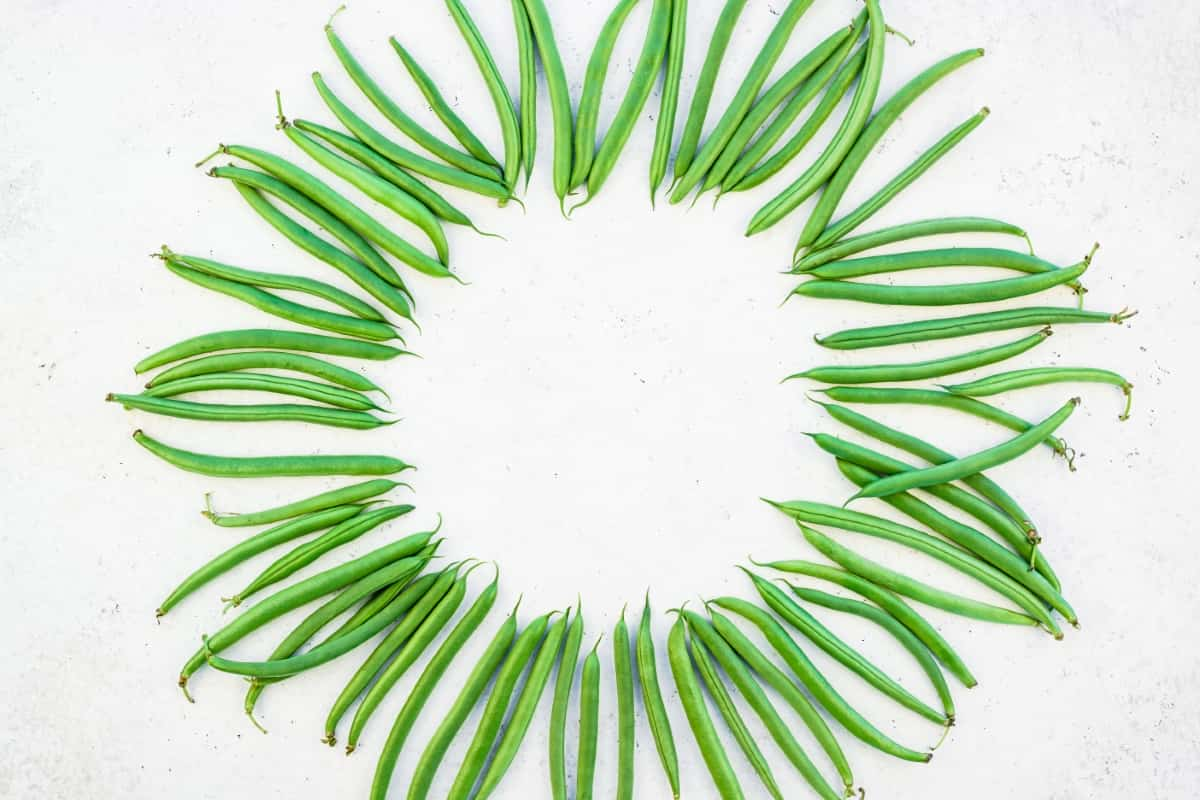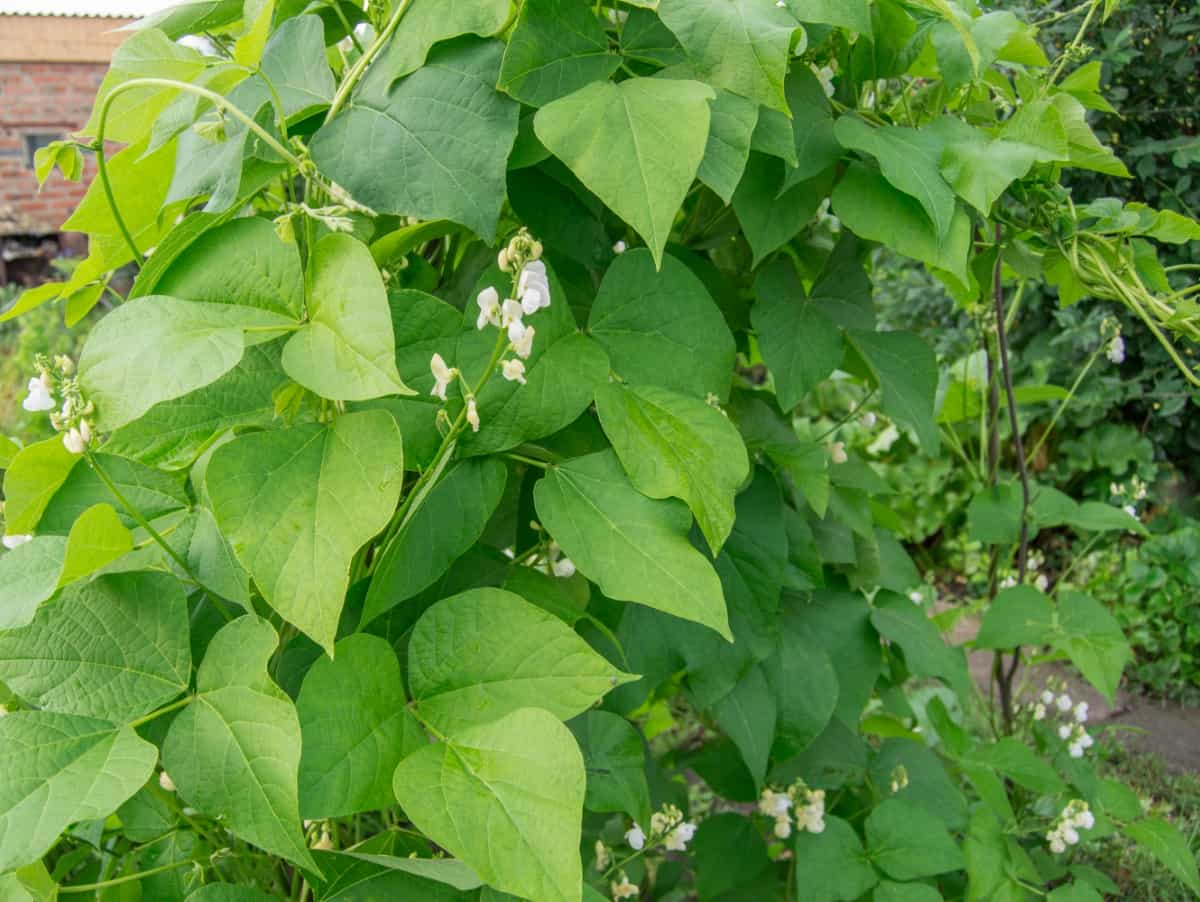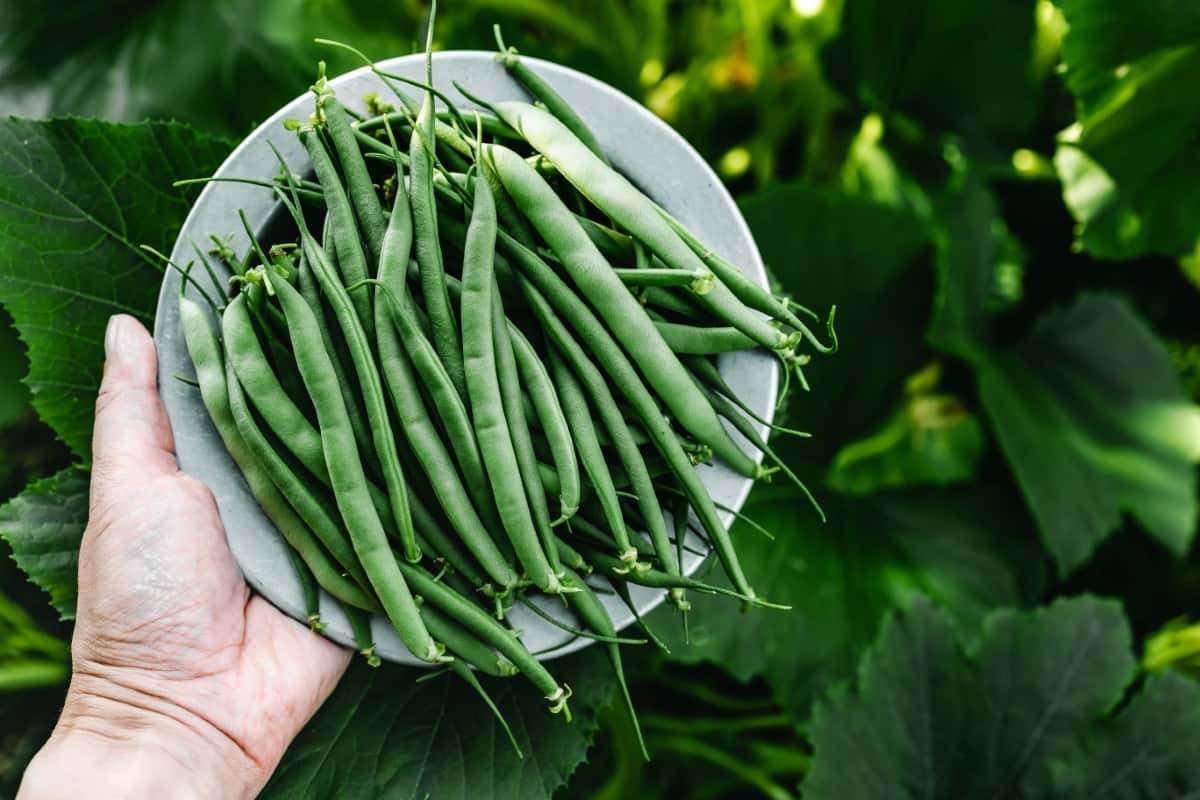Beans are a popular plant to grow in gardens due to their versatility and nutritional value. However, it can be frustrating when the plants produce flowers but fail to bear any fruit. There are several reasons why this may occur, and fortunately, there are remedies and ways to fix the issue.

Beans Plant Flowers but No Fruit
Lack of Pollination in Beans Plant Leading to No Fruit Production
Another factor that can affect the fruiting ability of bean plants is insufficient sunlight. Beans are sun-loving plants and require a minimum of six hours of direct sunlight each day for optimal growth and fruit production. If the plants are not receiving enough sunlight, they may focus their energy on vegetative growth rather than fruit development.
To rectify this, gardeners should ensure that the bean plants are placed in a location that receives ample sunlight. If growing beans indoors, using grow lights can help provide the necessary light intensity for fruiting.
Insufficient Sunlight Affecting Bean Plant’s Ability to Bear Fruit
Another factor that can affect the fruiting ability of bean plants is insufficient sunlight. Beans are sun-loving plants and require a minimum of six hours of direct sunlight each day for optimal growth and fruit production. If the plants are not receiving enough sunlight, they may focus their energy on vegetative growth rather than fruit development.
To rectify this, gardeners should ensure that the bean plants are placed in a location that receives ample sunlight. If growing beans indoors, using grow lights can help provide the necessary light intensity for fruiting.
Inadequate Soil Fertility Hindering Fruit Development in Beans Plants
Inadequate soil fertility is another significant factor in why are my bean plants not setting fruit. Beans require well-draining soil with good organic matter content and a pH between 6.0 and 7.0 for optimal growth. The plants may struggle to produce fruits if the soil lacks essential nutrients or has a poor structure.
To address this issue, gardeners can amend the soil with organic matter such as vermicompost or well-rotted manure to improve fertility. Additionally, incorporating balanced fertilizers specifically formulated for vegetable plants can provide the necessary nutrients required for fruit development.
Improper Watering Techniques Causing Beans Plants to Flower but Not Fruit
One common reason for bean plants to flower but not produce fruit is improper watering techniques. Inconsistent or incorrect watering can disrupt the reproductive process in bean plants. For instance, overwatering can lead to poor fruit set as it can drown the flowers or cause them to rot.
On the other hand, underwatering can cause stress to the plant, leading to flower drop and a lack of fruit production. To remedy this, it’s crucial to provide the bean plants with consistent moisture levels. Watering deeply and thoroughly, allowing the soil to dry slightly between waterings, is generally recommended.
Pest Infestation or Disease Affecting the Reproductive Process in Bean Plants
Another factor that can prevent bean plants from fruiting is pest infestation or disease. Insects like aphids, bean beetles, or mites can damage the flowers, preventing them from developing into fruits. Diseases such as bacterial blight or powdery mildew can also affect the reproductive process and hinder fruit production.
In case you missed it: Beans Companion Plants: What to Plant Next to Beans and What Not to Plant Next to Beans?

To address this issue, it is essential to regularly check your bean plants for any signs of pests or diseases. If infestations or infections are detected, appropriate measures, such as using organic insecticides or fungicides, should be taken to control the problem.
Incompatible Bean Plant Varieties Leading to Poor Fruit Set
Incompatibility between bean plant varieties can also contribute to poor fruit set. Some bean plants are not compatible with each other when it comes to pollination, which can result in a lack of fruit production. If you are planting multiple varieties of beans, make sure they are compatible and can cross-pollinate successfully. Alternatively, consider planting self-pollinating varieties to avoid this issue.
Excessive Nitrogen Fertilization Resulting in Excessive Vegetative Growth and No Fruiting
Excessive nitrogen fertilization is yet another reason why bean plants may produce excessive vegetative growth but no fruit. While nitrogen is essential for plant growth, an excess of this nutrient can promote lush foliage at the expense of fruiting. To prevent this, it is important to provide bean plants with a balanced fertilizer that contains the necessary nutrients in the correct proportions. Avoid over-fertilizing with nitrogen-rich fertilizers and, instead, opt for a fertilizer formulation specifically designed for vegetables.
Extreme Temperatures Impacting the Flowering and Fruiting Stages of Bean Plants
One of the most common reasons for beans to produce flowers but no fruit is extreme temperatures during the flowering and fruiting stages. High temperatures can hinder the process of pollination, resulting in poor fruit set. Additionally, excessively low temperatures can also affect the development of flowers and prevent successful fertilization.
To address the issue, firstly, providing shade or using shade cloth to protect the plants during hot summer days can help maintain a more moderate temperature. Similarly, during cold spells, covering the plants with row covers or creating temporary greenhouses can provide insulation and protect them from frost. Additionally, timing the planting of beans to avoid periods of extreme temperature can also be beneficial.
Improper Pruning or Lack of Pruning Affecting the Fruiting Potential of Bean Plants
Without proper pruning, bean plants can become overcrowded, reducing fruiting potential. To address the issue of improper pruning or lack of pruning, it is important to follow proper pruning techniques for bean plants. Regularly remove any dead or diseased branches to maintain plant health. Additionally, thinning out excessive growth and ensuring adequate spacing between plants can help improve airflow and light penetration. It is crucial to strike a balance between removing excessive foliage and maintaining enough leaves for photosynthesis.
Genetic Factors Influencing the Ability of Bean Plants to Produce Fruits
Genetic factors are very important in determining the fruiting potential of bean plants. Some bean varieties may naturally have lower fruiting rates due to their genetic makeup. This can be one of the limiting factors in achieving a fruitful harvest. To address genetic factors impacting the fruiting ability of bean plants, selecting the right bean varieties becomes crucial.
In case you missed it: Natural and Organic Ways to Treat Beans Leaf Curl: Fix With Effective Home Remedies

Look for bean cultivars that are known for their high fruiting potential and resilience to adverse conditions. Additionally, consider saving seeds from plants that have exhibited excellent fruiting characteristics in previous seasons, as this can help propagate desirable traits.
Conclusion
In conclusion, when bean plants produce flowers but fail to bear fruit, poor pollination, nutrient deficiencies, inadequate sunlight, and improper watering practices may be to blame. Addressing these problems and implementing the suggested remedies can increase the chances of a bountiful bean harvest.
- Feed Your Flock for Less: Top 10 Tips to Save on Chicken Feed
- Ultimate Guide to Ossabaw Island Hog: Breeding, Raising, Diet, and Care
- Hatching Answers: The Top 10 Reasons Your Chickens Aren’t Laying Eggs
- Eggs and Economics: Breaking Down the Cost of Raising Backyard Chickens
- Defend Your Greens: Proven Methods to Keep Iguanas Out of Your Garden
- Ultimate Guide to Cinnamon Queen Chicken: A Comprehensive Guide for Beginners
- Ultimate Guide to California Tan Chicken: Breeding, Raising, Diet, Egg-Production and Care
- Ultimate Guide to Marsh Daisy Chicken: Breeding, Raising, Diet, and Care
- 10 Types of Chicken Farming Businesses You Can Start for Profits